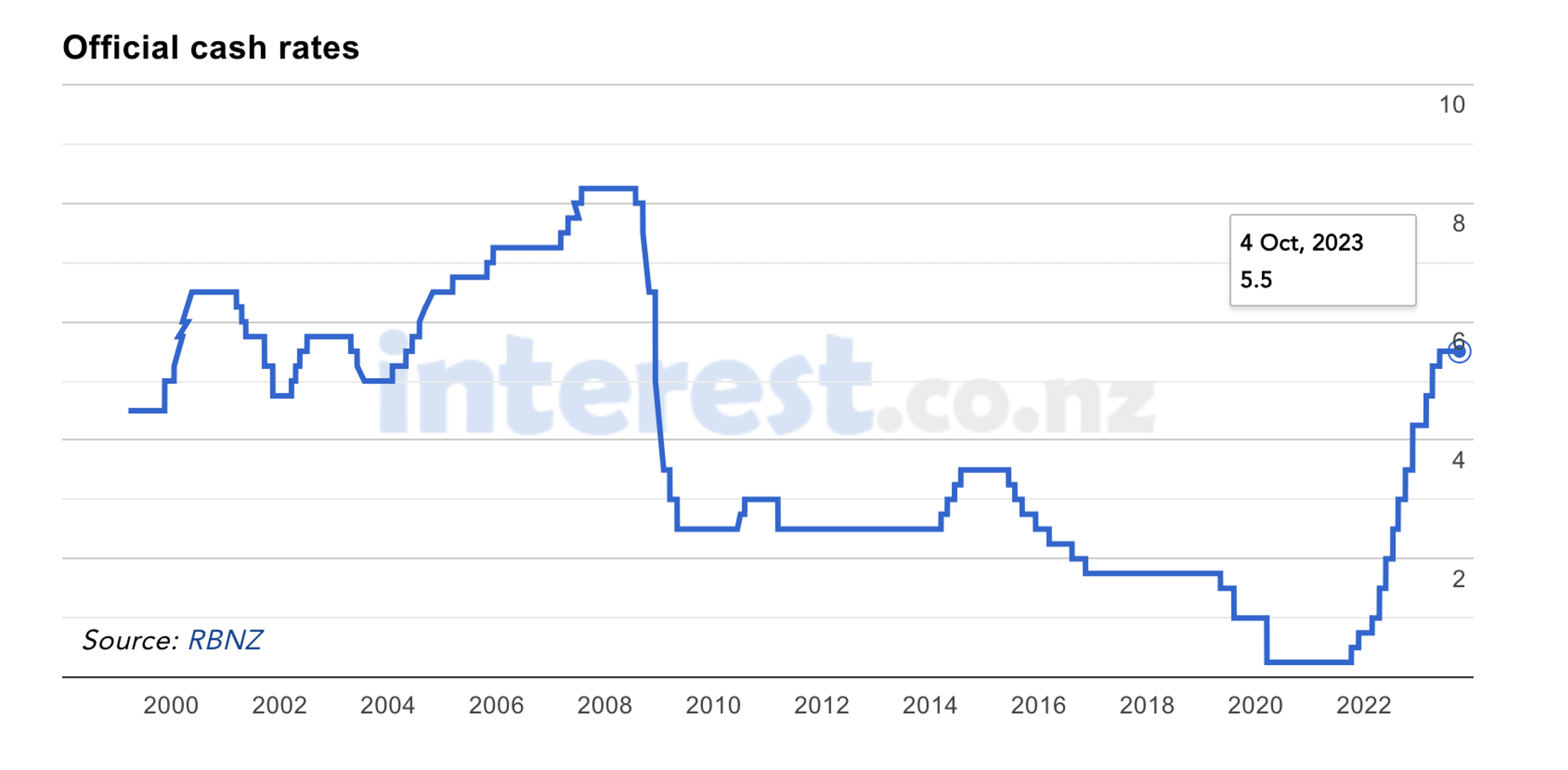Why continued high interest rates aren’t all bad news


Post by David Cunningham – Chief Squirrel
The fourth of October was Official Cash Rate (OCR) day, with the Reserve Bank handing down its second-to-last verdict on interest rates for 2023.
Less than a fortnight out from election day, few were surprised by its call to hold the OCR steady at 5.50%. And meanwhile, it also doubled down on earlier statements that rates will need to stay at this level for some time to get inflation back within the target 1-3% range.
The outcome has meant that, after rumblings from parts of the market to suggest we could be in for another hike, most economists are now predicting the OCR will remain at 5.50% through much of 2024.
It’s not the news that Kiwi mortgage-holders were hoping for
Although rates aren’t likely to climb any further, there’s no relief on the horizon either.
And that means shorter-term home loan interest rates are expected to stay at or near current levels — between 6.99% and 7.25% — well into next year.
Today, with some Kiwi households still rolling off fixed term rates as low as 2.5%, the average mortgage rate we’re paying is just over 5%. Assuming rates stay where they are, there’s another 2% p.a. interest, on average, to come.
And with $350 billion worth of mortgages in New Zealand, a 2% increase in interest rates equates to $7 billion more out of household budgets each year.
The cost of living crisis won’t be coming to an end any time soon for those households.
But in actual fact, high interest rates aren’t all bad. The implications for savers are fantastic
Two years ago, Kiwi had about $210 billion sitting in transaction and savings accounts, and term deposits.
Back then, when interest rates were at record lows, the average return Kiwi were earning on that money was 0.5% per annum, which equated to about $1 billion in interest earnings each year (before tax).
Fast forward to today, though, and the average interest rate banks are paying on those deposits has skyrocketed to around 4% — levels we haven’t seen in at least 15 years — driven by the 5.25% of hikes in the OCR.
On the collective $235 billion Kiwi have in deposits today, that’s over $9 billion dollars in interest per annum. In other words, interest earnings before tax have grown more than 800% in just two years!
Larger deposit balances tend to be skewed towards Kiwi who are approaching, or in, retirement. So while homeowners with mortgages are undoubtedly feeling the pain of higher interest rates, anyone with substantial savings will be feeling much happier.
And the longer the OCR stays at its current level, the longer those higher returns will last.
But why are average returns only at 4% when the OCR is at 5.50%?
The big reason: customer inertia.
Right now, Kiwi households have $40 billion sitting in transaction accounts, where the banks pay them nothing for it. Yep, 0% interest.
Meanwhile, there’s also $75 billion of Kiwi money sitting in savings accounts, earning an average rate of about 3.75% p.a. — or actually, in the case of ANZ and ASB’s no-strings-attached savings accounts, less than 3% p.a.
And that difference — between the OCR, and the interest rate banks pay savers on deposits — fuels billions in bank profits each year.
Many Kiwi accept these low returns, but they can do so much better. And the solution is painfully simple.
If you have more than a few hundred dollars sitting in a transaction account, or any money sitting a low-yield savings account — move it!
There are other options out there which will enable you to earn well over 4%, and as much as 5.25% p.a. on call, or even more if you’re prepared to lock your money away for a longer term.
We’ve crunched the numbers on New Zealand’s best and worst savings accounts — check it out to see how your savings account stacks up, and whether you’re missing out (to your bank’s benefit).
Receive updates on the housing market, interest rates and the economy. No spam, we promise.
The opinions expressed in this article should not be taken as financial advice, or a recommendation of any financial product. Squirrel shall not be liable or responsible for any information, omissions, or errors present. Any commentary provided are the personal views of the author and are not necessarily representative of the views and opinions of Squirrel. We recommend seeking professional investment and/or mortgage advice before taking any action.
To view our disclosure statements and other legal information, please visit our Legal Agreements page here.


